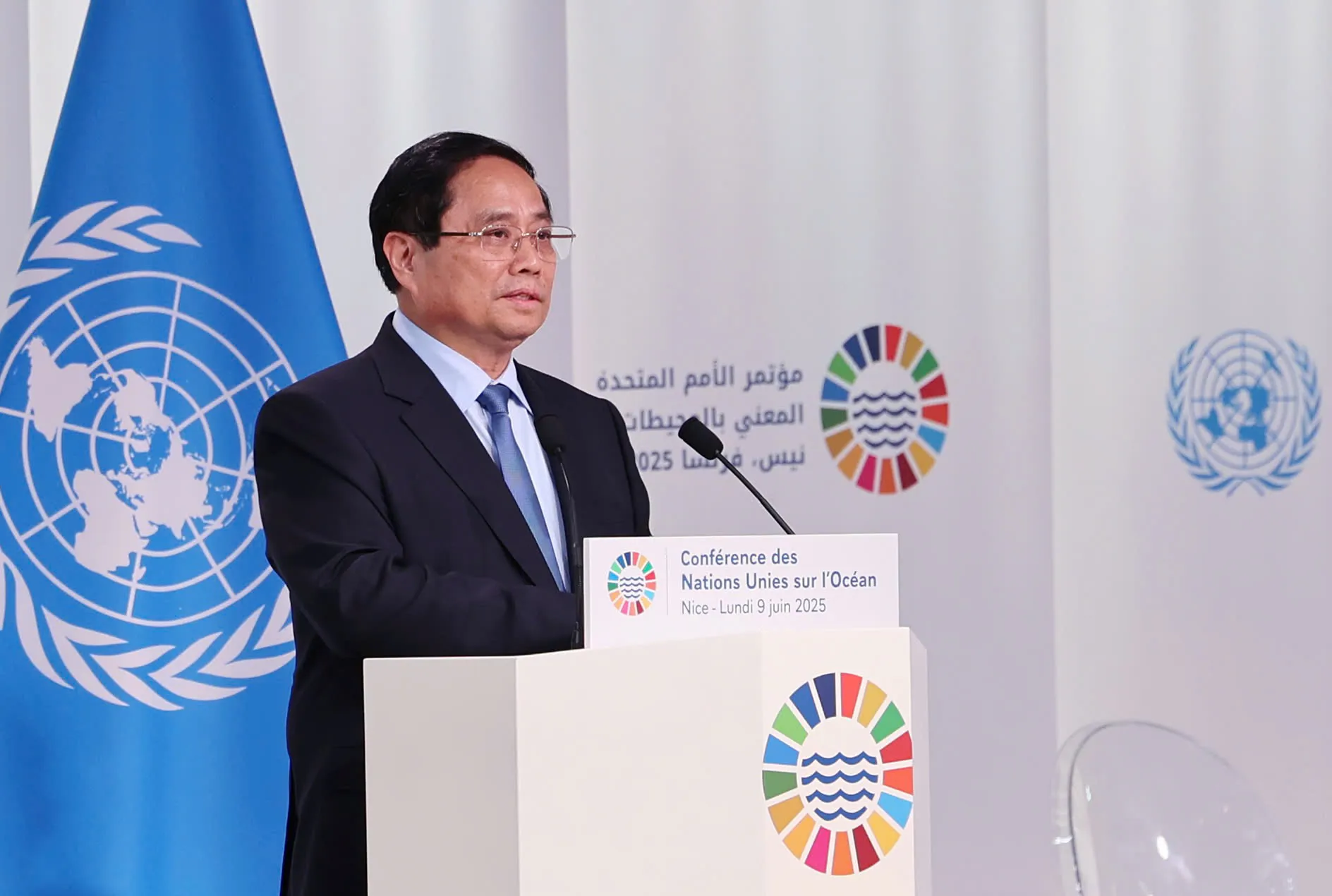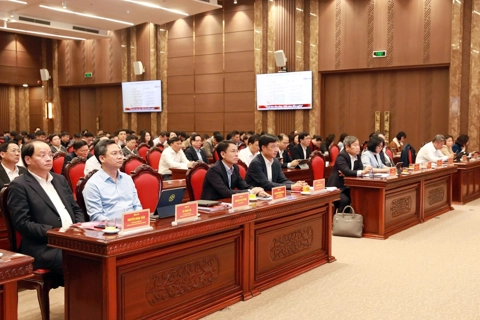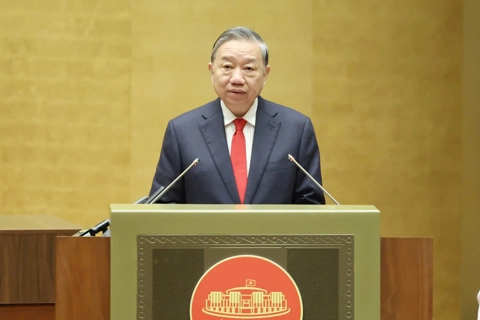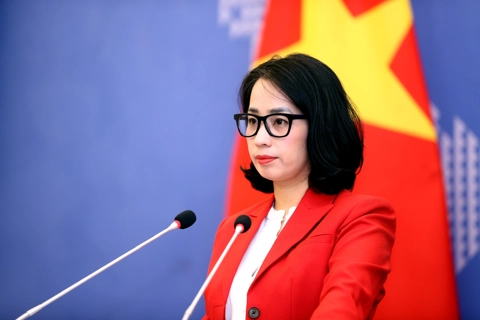UNOC3 inspires strategic partnership for greener oceans: Vietnamese PM
Vietnam, with 3,200 km of coastline, addresses ocean challenges by upholding UNCLOS, endorsing SDG 14, promoting global cooperation, and advancing a sustainable blue economy.
THE HANOI TIMES — Vietnam’s Prime Minister Pham Minh Chinh said the third UN Ocean Conference (UNOC3) is expected to inspire unity and strong commitments for the establishment of strategic partnerships that act as catalysts for the greening of oceans.

Vietnam’s Prime Minister Pham Minh Chinh delivers a speech at the 3rd UN Ocean Conference (UNOC3) held in Nice, France on June 9. Photos: Nhat Bac/VGP
On June 9, the Vietnamese Prime Minister delivered a message at the UNOC3 in Nice, France, on behalf of the ten member states of the Association of Southeast Asian Nations (ASEAN).
He reaffirmed ASEAN’s commitment to the 1982 United Nations Convention on the Law of the Sea (UNCLOS), also known as the “Constitution of the Oceans.” This convention provides a comprehensive legal framework for all maritime activities.
He stressed ASEAN’s central role in maritime Asia, highlighting the South China Sea as a critical hub for trade routes, vibrant ecosystems, and the livelihoods, culture, and security of hundreds of millions of people.
Chinh expressed concerns about threats to the ocean, such as climate change, biodiversity loss, pollution, overfishing, and geopolitical tensions, all of which harm marine health and global trust. To this end, he presented ASEAN’s priorities, which include ensuring oceans remain peaceful and cooperative, integrating global-regional governance, driving prosperity through oceans, and strengthening cooperative global ocean governance to advance Sustainable Development Goal (SDG) 14.
SDG 14, “Life below Water,” promotes the sustainable management of oceans and marine resources by prioritizing biodiversity protection and resilient ocean ecosystems for sustainable development.
Representing Vietnam, Chinh pointed out the paradox that oceans, despite covering over 70% of Earth’s surface and being its largest ecosystem, receive the least investment among the UN’s 17 Sustainable Development Goals through SDG 14, which focuses on sustainable ocean conservation and use.
In this regard, he urged swift and collective global action for science-driven, inclusive ocean governance, supported by practical policies, while emphasizing efforts at global, regional, and national levels.
In his speech, the prime minister proposed six priorities, namely: integrating science with traditional knowledge; leveraging technology for sustainable marine economies; mobilizing resources; implementing multi-sectoral ocean management; promoting global green marine hubs; and emphasizing international cooperation.
Affirming Vietnam’s role as a trusted and responsible global partner, Chinh stressed proactive efforts toward SDG 14 via a three-pronged strategy of promoting green marine industries and ecosystem restoration, building partnerships for knowledge and technology transfer, and engaging in national, regional, and global initiatives.
At the conference, he announced Vietnam’s 15 voluntary pledges on ocean governance, reaffirming the country’s action-oriented approach: “What is promised must be effectively delivered.”
Prime Minister Chinh urged collective efforts with a powerful call to action: “Let us unite with a sense of responsibility, initiative, and creativity to ensure our oceans remain a place of peace, cooperation, development, and prosperity for both current and future generations.”
Vietnam, with over 3,200 km of coastline, faces significant ocean challenges, including rising sea levels, marine pollution, biodiversity loss, overfishing, and regional tensions in the East Sea (South China Sea).
Meanwhile, climate change further endangers coastal communities and sustainable development.
To address these issues, Vietnam champions the UNCLOS 1982, endorses SDG 14, and actively participates in global marine cooperation. At the same time, country promotes a sustainable blue economy, responsible fisheries, and marine conservation, while embracing science, innovation, and digital tools for ocean governance.












